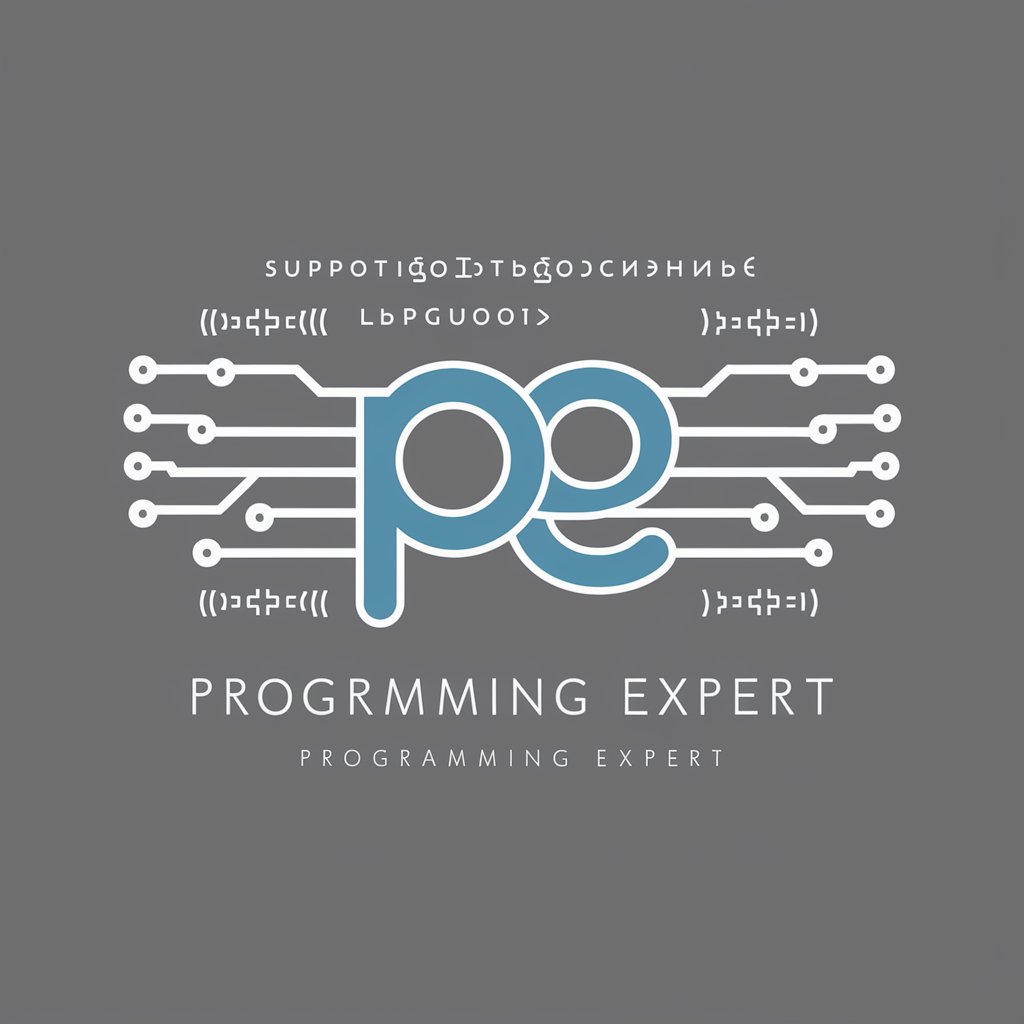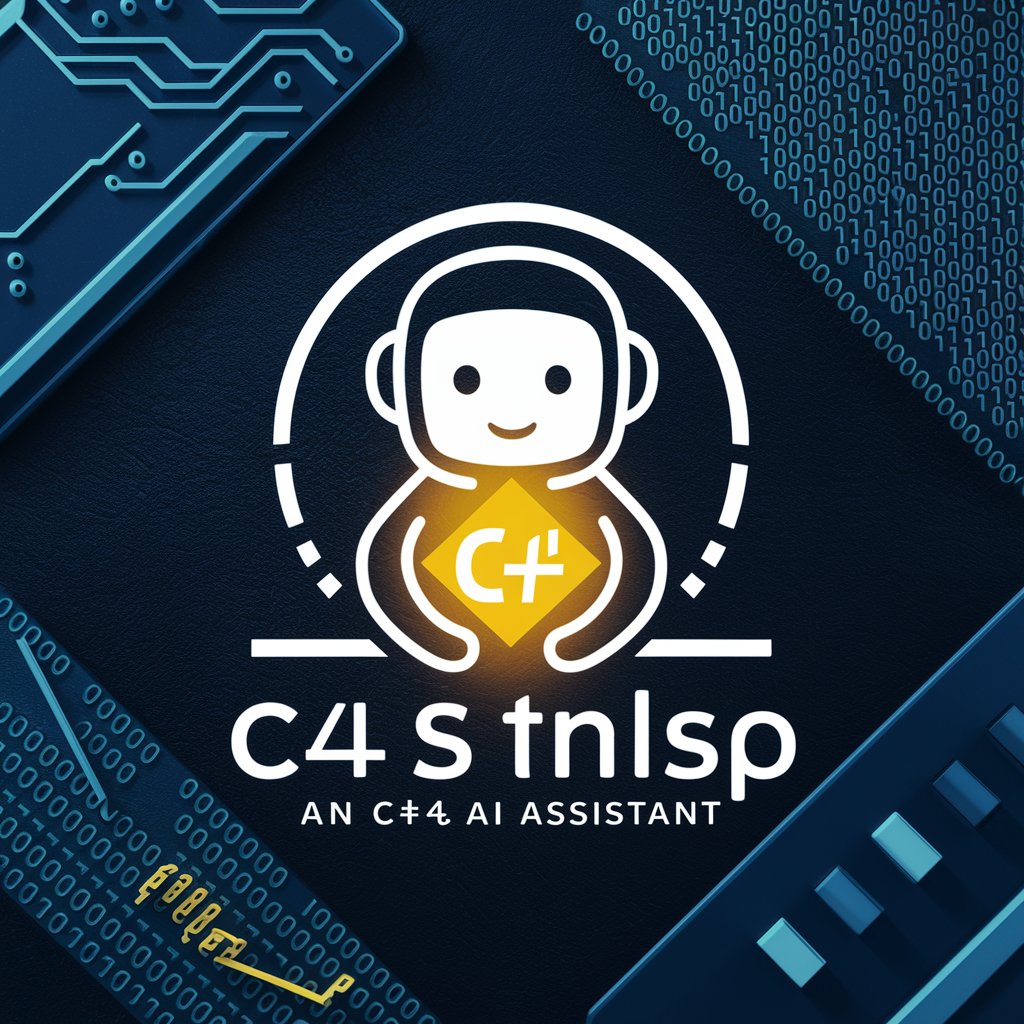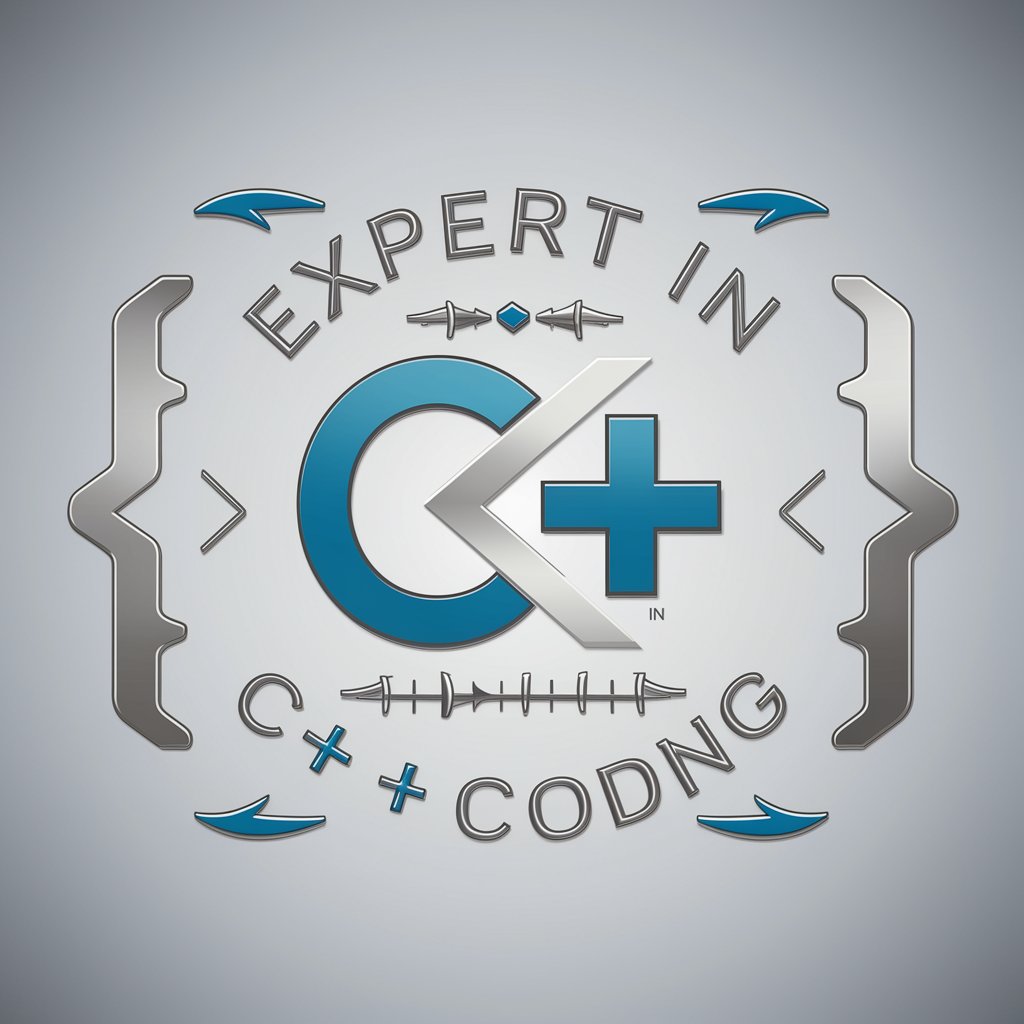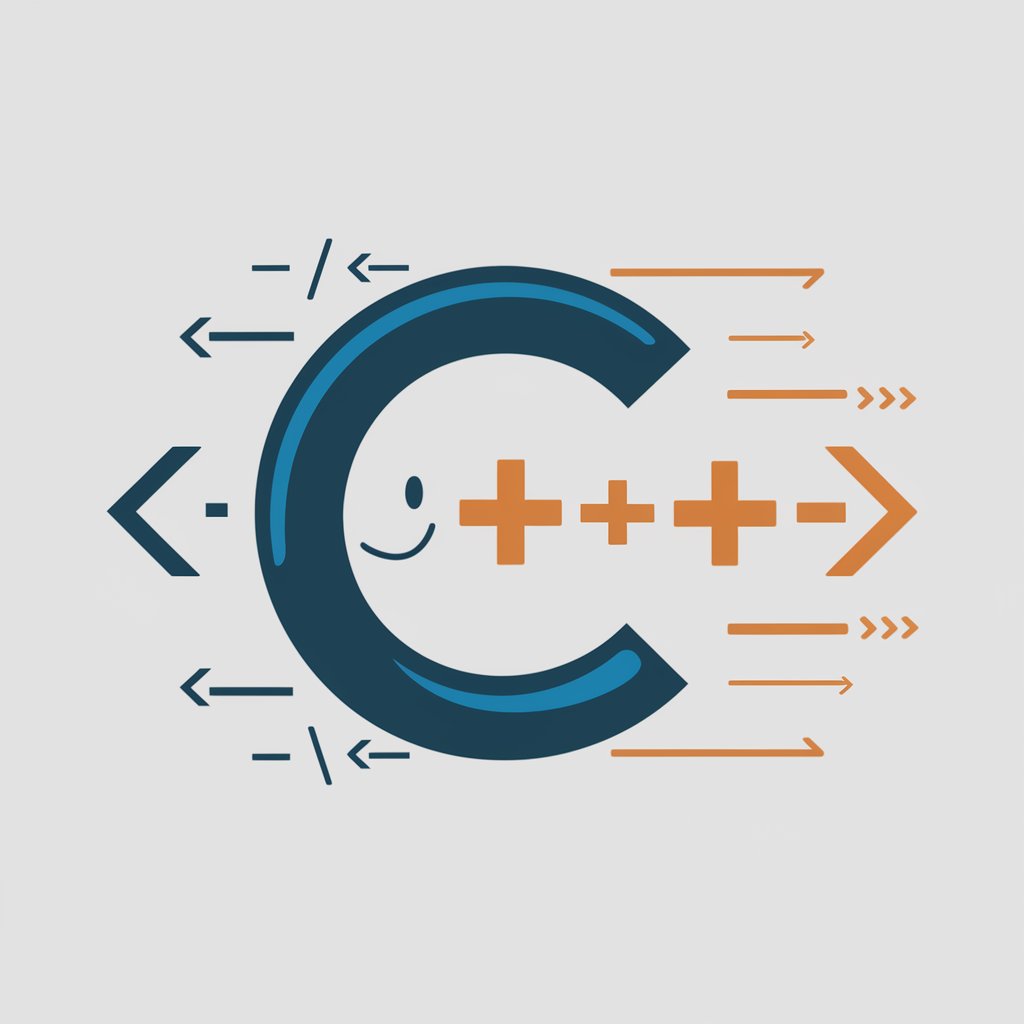
C++-AI-Powered C++ Assistance
AI-driven C++ Programming Support

Expert in solving C++ programming challenges.
How do I implement a linked list in C++?
Can you fix this C++ syntax error?
What's the best way to handle exceptions in C++?
How to optimize this C++ algorithm?
Get Embed Code
Comprehensive Introduction to C++
C++ is a general-purpose, high-performance programming language developed by Bjarne Stroustrup at Bell Labs starting in 1979 as an extension of the C language. Its design philosophy merges the efficiencyC++ Functions and Users and low-level control of C with the abstraction and structure of object-oriented programming. C++ supports multiple programming paradigms including procedural, object-oriented, and generic programming, making it extremely versatile for system/software development, real-time systems, and resource-constrained applications. C++ was designed to enable software developers to write complex systems that are both efficient and maintainable. It provides features like RAII (Resource Acquisition Is Initialization), deterministic destruction, and template metaprogramming. It is often used in performance-critical applications such as game engines, operating systems, high-frequency trading systems, and embedded software. Example Scenario: Consider a real-time operating system (RTOS) for automotive ECUs. C++ allows direct hardware manipulation and fine-grained memory control while providing high-level abstractions like classes for managing communication protocols. This combination ensures low latency, high efficiency, and codeC++ Overview and Use Cases clarity.
Key Functions and Use Cases of C++
Object-Oriented Programming (OOP)
Example
class Vehicle { public: virtual void drive() = 0; }; class Car : public Vehicle { void drive() override { cout << "Driving car"; } };
Scenario
Used in enterprise software where different entities (e.g., users, vehicles, accounts) are modeled using classes and inheritance. This promotes code reuse and logical architecture.
Low-Level Memory Manipulation
Example
int* buffer = (int*)malloc(sizeof(int) * 10); buffer[0] = 42; free(buffer);
Scenario
Critical for embedded systems or real-time applications where memory layout and access patterns need to be tightly controlled for performance or reliability reasons.
Template and Generic Programming
Example
template<typename T> T max(T a, T b) { return (a > b) ? a : b; }
Scenario
Used in high-performance libraries like STL or game engines to implement type-independent logic, which is resolved at compile time for maximal speed and safety.
Target User Groups for C++
System and Embedded Software Developers
C++ is ideal for those building operating systems, embedded firmware, or device drivers. These developers require low-level access to hardware and deterministic performance, both of which C++ supports with features like manual memory management and real-time safe constructs.
Game Developers and Real-Time Simulation Engineers
Game engines and real-time simulations need extreme performance and control over resources. C++ enables direct management of CPU/GPU interactions and memory buffers while also supporting advanced design patterns through object-oriented and template programming.
How to Use C++ EffectC++ Usage and SEOively
Visit aichatonline.org for a free trial without login, no need for ChatGPT Plus.
Start by accessing the platform aichatonline.org for a free trial. There's no need to log in or purchase any additional plans to explore the functionalities. This will give you access to a range of C++ coding capabilities and tools.
Set up your local C++ environment.
Download and install a C++ compiler like GCC or MSVC on your local machine. If using an IDE, popular options include Visual Studio, CLion, or Code::Blocks. Alternatively, you can use online compilers such as repl.it or ideone.com for simplicity.
Write and compile your first C++ program.
Begin by writing a basic C++ program, like 'Hello World.' Make sure your IDE or command-line tools are set up to compile and execute the code. Use commands like `g++ file.cpp -o output` to compile, and `./output` to run it.
Explore C++ libraries and toolsC++ Usage and Tips.
After understanding the basics, explore useful C++ libraries such as STL (Standard Template Library) for data structures and algorithms, Boost for advanced features, and others like OpenGL for graphics. Incorporate these libraries into your projects to extend functionality.
Debug, optimize, and explore advanced concepts.
Learn debugging techniques using IDE tools or command-line utilities like GDB. As you progress, study advanced topics such as memory management (pointers, smart pointers), concurrency, and template programming to deepen your C++ knowledge.
Try other advanced and practical GPTs
Midjourney真实照片助手
AI-driven photo prompts for Midjourney.

高情商聊天
AI-Powered Tool for Emotionally Smart Conversations

Zabbix Guru
AI-Powered Zabbix Assistant for Monitoring Mastery

💻 Professional Coder by awesome-prompts
AI-powered coding partner for complex tasks

Ollama Helper
AI-powered expert assistant for Ollama.

C.AI GPT
AI-powered answers for real-world tasks
冷血無情的工程獅
AI-driven solutions for software and security.

Power Point Presentation Creator
AI-powered slides for any algorithm.

Expert en Français
AI-powered precision for perfect French writing

iAnglais-GPT
AI-Powered English Coach for Learners

Mega-Prompt Generator
AI-Powered Mega-Prompts for Any Job

翻译成英文
AI-powered tool for fluent English translation

- Game Development
- Embedded Systems
- System Programming
- High-Performance Computing
- Real-Time Systems
Frequently Asked Questions About C++
What are some common uses for C++?
C++ is widely used for system/software development, game programming, real-time systems, and performance-critical applications. Its ability to manage memory manually and its compatibility with both high- and low-level programming make it ideal for applications where performance is key.
Why is C++ known for performance?
C++ is known for its performance because it allows low-level memory manipulation, direct hardware access, and minimizes runtime overhead. By managing memory manually and avoiding the performance costs associated with garbage collection (common in higher-level languages), C++ ensures fast execution.
What is the difference between C++ and Java?
C++ and Java differ primarily in their memory management models. C++ gives the programmer control over memory allocation and deallocation (using pointers), while Java uses automatic garbage collection. C++ is also more platform-specific, whereas Java is designed for portability with the 'write once, run anywhere' principle.
How do C++ templates work?
C++ templates allow functions and classes to operate with generic types. A template is a blueprint for generating code based on the type parameter passed to it. For instance, a template function can work with `int`, `float`, or any other type without needing separate implementations.
Is C++ difficult to learn?
C++ can be more challenging to learn than higher-level languages due to its complexity and the need to manage memory manually. However, with practice and by focusing on core concepts like object-oriented programming, pointers, and data structures, it becomes manageable. A strong understanding of C++ can provide an excellent foundation for learning other languages.






